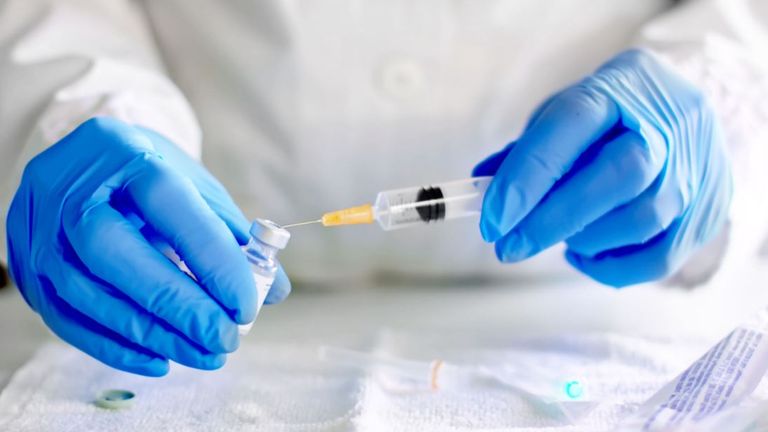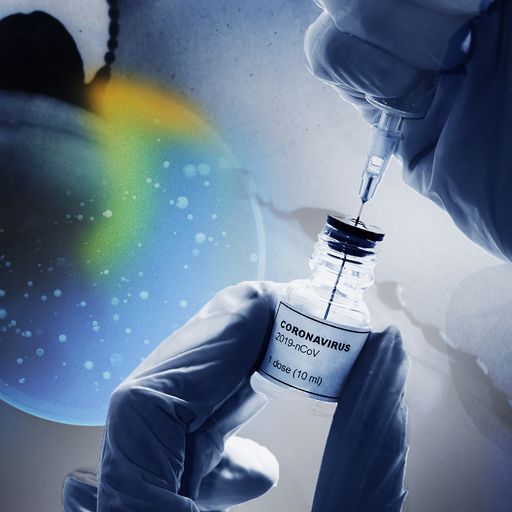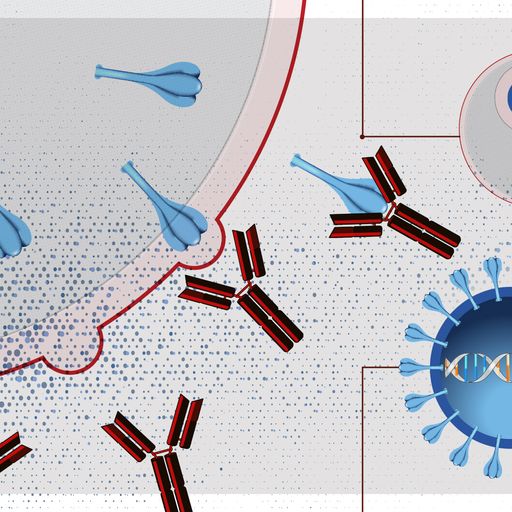The "breakthrough" technology used to develop coronavirus vaccines could be used to tackle other diseases in the future, an expert has claimed.
Both the Pfizer/BionTech and Moderna jabs use the messenger RNA, or mRNA technology, which has not been used before in vaccines.
It works by introducing a messenger sequence into the body containing the genetic instructions for the vaccinated person's own cells to produce the antigens and generate an immune response.
:: Subscribe to the Daily podcast on Apple Podcasts, Google Podcasts, Spotify, Spreaker
This means it can trigger the immune system to produce protective antibodies without using the actual virus.
Speaking on Sky News' Daily podcast, World Health Organisation (WHO) epidemiologist Dr Larry Brilliant described mRNA technology as a "breakthrough" that "has the potential for phenomenal knock-on effects".
He said: "The idea that you can use messenger RNA to instruct the body to make a cure or to make a sequence that leads to the cure or prevention of disease is breath-taking.
He added: "If it brings in an age of RNA type of interventions, it can change many of the worst diseases that we face."
Dr Brilliant said a vaccine "is the most important thing" in beating the virus, which will enable us to "throw COVID into the dustbin of history".
But he said that historically, "mass vaccination doesn't lead to the total end of a disease" and it "takes many years until you have a strategy that is a breakthrough".
"There are 140 plus vaccines that are being worked on all over the world - I'm holding out to see if any of these vaccines have a particular characteristic."
The Pfizer vaccine has shown to be 95% effective at preventing COVID-19 and works for all age groups.
The UK became the first country in the world to approve the vaccine, which is being rolled out this week.
Health regulator MHRA's fast approval of the jab prompted criticism from America's top infectious diseases expert Dr Anthony Fauci, who said the UK's vaccine approval process was "less deep" than the US. He later backtracked and apologised.
The UK's decision was also criticised by Peter Liese, a German MEP and a member of Angela Merkel's party, who said: "I consider this decision to be problematic and recommend that EU Member States do not repeat the process in the same way.
"A few weeks of thorough examination by the European Medicines Agency is better than a hasty emergency marketing authorisation of a vaccine," Mr Liese said.
US-based company Moderna had equally encouraging results, saying phase 3 trials showed its experimental vaccine is also around 95% effective.





